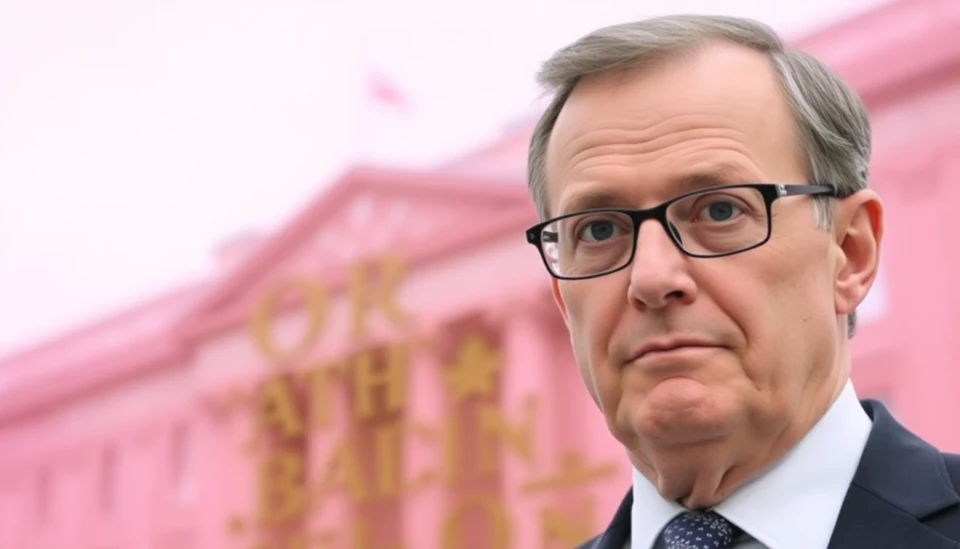
In a significant development in European monetary policy, Francois Villeroy de Galhau, the Governor of the Bank of France and a prominent member of the European Central Bank (ECB), has publicly called for an adjustment in interest rates as inflation appears to be nearing the ECB's targeted levels. Villeroy’s remarks come at a time when the central bank is scrutinizing its approach to managing economic stability and inflationary pressures across the Eurozone.
Speaking at a recent conference, Villeroy indicated that the current economic indicators suggest that inflation is stabilizing and heading towards the ECB's target of 2%. This revelation is particularly pivotal considering the tightrope the ECB has walked over the last year, combating rampant inflation that surged in response to various global pressures, including fluctuating energy prices and supply chain disruptions.
Villeroy’s statements mark an important shift in the ECB's narrative; previously, central bank officials underscored the need for vigilance against inflation risks. The official highlighted that the time may now be ripe for the ECB to consider a policy pivot, especially as the momentum of rising inflation seems to be diminishing. This commentary comes ahead of upcoming meetings where the central bank will deliberate on its monetary policy strategy amidst a shifting economic landscape.
Despite the early signs of inflationary moderation, Villeroy cautioned that any monetary policy adjustments would need to be approached with careful deliberation. He emphasized that these decisions would depend on the sustainability of the current economic improvements, reiterating the central bank's commitment to maintaining its inflation target in the long term.
The Bank of France Governor’s proposals resonate with broader discussions around the impact of interest rates on economic growth. A reduction in rates could provide a necessary stimulus to support borrowing and investment in an environment recovering from previous inflation spikes. This, however, is a key balancing act, as policymakers must remain wary of inadvertently reigniting inflationary pressures.
Market analysts are keenly watching these developments, as any indication of shifts in ECB policy will significantly impact European financial markets. Investors and economists are particularly attuned to how these changes may affect the Eurozone’s sluggish recovery and long-term economic prospects. With Villeroy leading the charge for potential rate cuts, the ECB could soon enter a new phase of monetary policy designed to foster growth while maintaining price stability.
As the ECB prepares for potential changes in the coming months, the broader implications for the Eurozone economy hang in the balance, drawing interest from businesses, investors, and governments alike.
#ECB #Inflation #InterestRates #FrancoisVilleroy #EconomicPolicy #EurozoneRecovery
Author: Rachel Greene




